Health and Hygiene
Maintaining good levels of health and hygiene are vital in a school environment and have been a priority from the start. Soap and hand washing.
This project goes hand in hand with our work on water and sanitation.
Maintaining good levels of health and hygiene are vital in a school environment and have been a priority from the start. Soap and hand washing.
This project goes hand in hand with our work on water and sanitation.
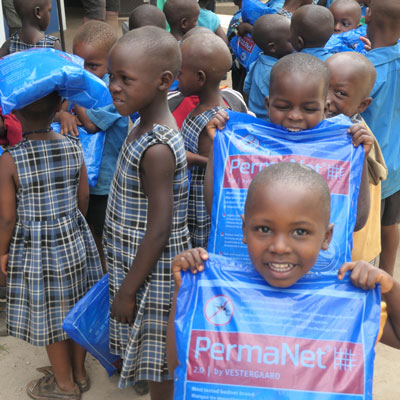
If you live in Uganda it is very likely you will suffer from malaria at some time in your life. The simplest and cheapest way to protect yourself from malaria is to sleep under a long lasting insecticide-treated mosquito net. The Ugandan government distributes mosquito nets from time to time but in rural areas these are often used as fishing nets, sofa covers and even wedding dresses!
A medical grade, insecticide-treated, mosquito net lasts for 3-4 years and we provided a net, along with education on how to use it for every pupil and staff member in 2016, and again in 2020.
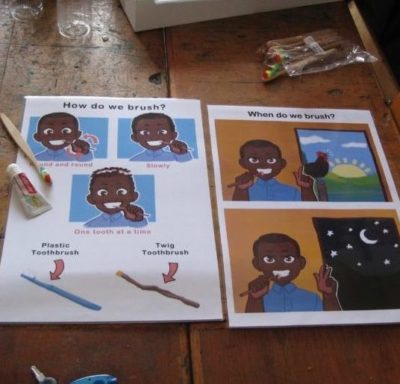
With a dentist as a trustee it was not long before toothbrushes were slipped into suitcases on our trips out to Uganda!
In 2020 we introduced a daily supervised toothbrushing programme at Uphill, which is working well. In Scottish schools supervised daily toothbrushing during the school day has great benefits in reducing decay in children’s teeth. It also improves the knowledge and understanding of regular oral care. There are no regular visits to dentists in rural Uganda, so good tooth care is very important.
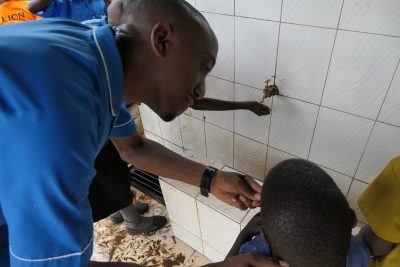
In 2018 a school nurse joined the staff at Uphill Junior School. Their role is to look after the health of the pupils – from bumps and bruises to minor ailments. The school nurse’s salary and clinic costs were grant-funded for 8 years and are now the responsibility of the trust.
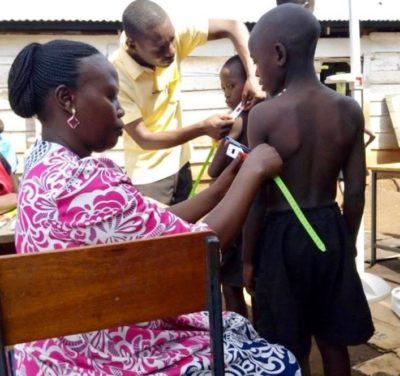
In the middle of 2018, a young pupil at Uphill fell and broke his leg, a childhood accident. While he was being treated for this our young patient was also diagnosed with malnutrition.
In many parts of rural Uganda, it is not the lack of food that is the problem, but the restricted diet that stems from lack of knowledge about balanced nutrition.
The Uphill Nutrition Project was set up up to assess the nutritional status of the pupils and provide training on the health benefits of a balanced diet. The school nurse now carries out these assessments on a regular basis.
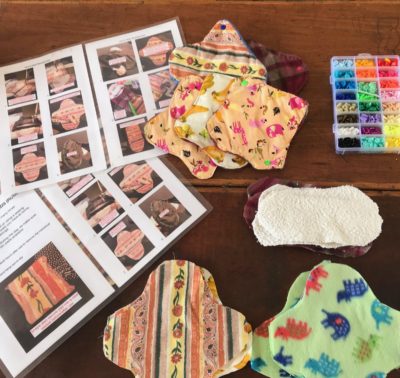
As some of the Uphill pupils are aged 14 or 15 by the time they leave primary school, education on menstruation is an important part of the curriculum.
Disposable sanitary products are beyond the means of many girls and women in rural areas. Access to washable pads, along with private washing facilities, is essential to allow girls to attend school when they have their period.
In 2020 we ran a workshop at the school for staff and interested pupils to show them how to make their own washable sanitary pads. This project is now embedded in the school curriculum.
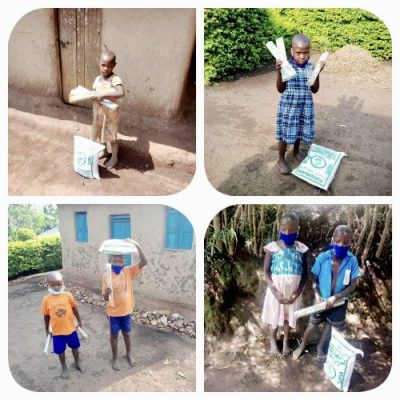
At the end of March 2020 Uganda entered lockdown to prevent the spread of COVID 19. This caused great hardship across Uganda. Very few people were allowed to work and food prices soared. There was some Government food aid within Kampala, but nothing reached the rural communities. We were asked if we could help. Covid Food Relief 1, Covid Food Relief 2, Back in Lockdown
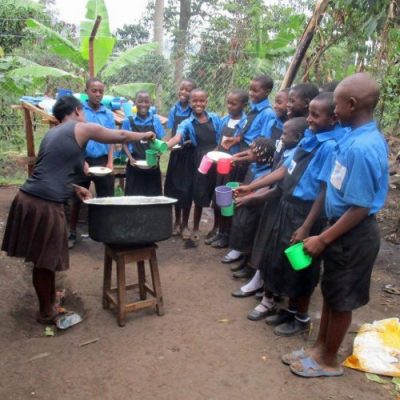
Many of the children at Uphill come to school hungry, and remain so all through the school day. Crop yields on their small shambas (subsistence farms) are down, and getting enough to eat is a continuing challenge for many of the school families. After consulting with Elius and the rest of the staff during our visit in February 2022, we launched the Uphill Porridge Club – so that every child will get a hot meal in school every day. It costs just £15 to feed a child for a whole school year – multiply that by all the pupils in the school and it becomes a major undertaking!
“Wonderful humbling work – making a big difference to so many people with so little. Thank you for your humanity.” M. Hardman, retired GP